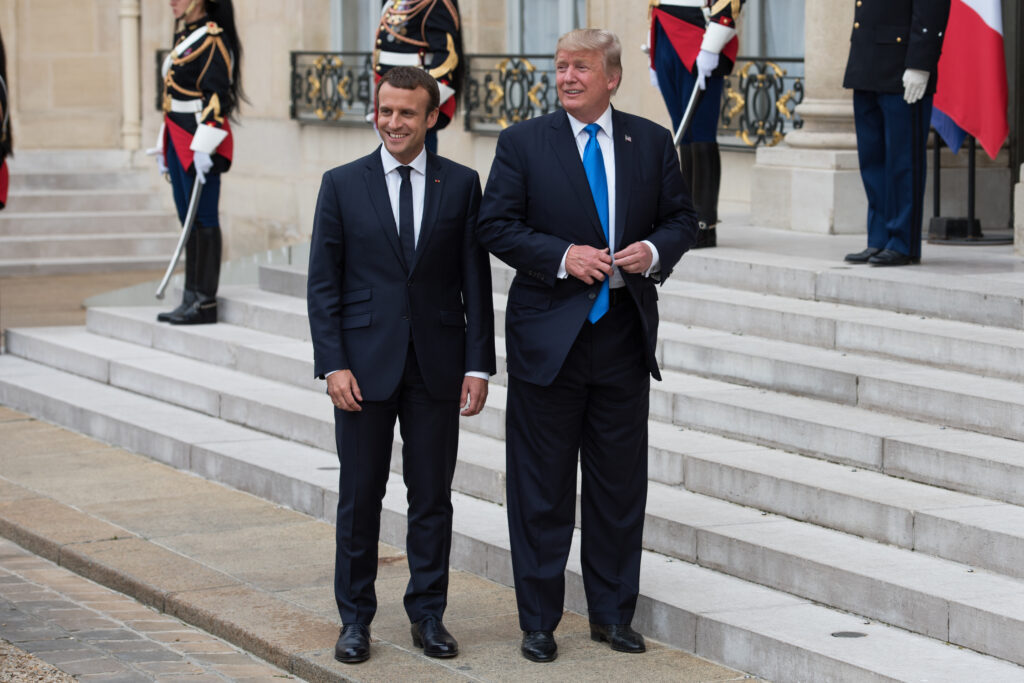France’s President Emmanuel Macron secured a symbolic victory with the reopening of Notre Dame Cathedral, blending the sacred and the political. He used the occasion to host a high-stakes meeting between Ukraine’s Volodymyr Zelenskyy and US President-elect Donald Trump, overshadowing other European leaders and reasserting his presence on the global stage.
The event followed a turbulent week for Macron. The collapse of his government left France in a political vacuum, leading to mounting calls for his resignation. Two days prior, Macron declared his intent to finish his 30-month term, defying critics.
Diplomatic Moves Amid Turmoil
The European Commission added to Macron’s challenges with the announcement of an EU-Mercosur trade deal, a move France and Macron vehemently opposed. The announcement highlighted France’s diminished influence in EU decision-making. Meanwhile, stormy weather forced the cancellation of a live concert outside the cathedral, further dampening the atmosphere.
Despite these hurdles, Macron orchestrated a diplomatic coup. He invited Trump and Zelenskyy to a trilateral meeting at the Elysée Palace ahead of the reopening ceremony. Images of Trump and Macron embracing and shaking hands symbolized unity, while Trump received a full guard of honour. Though Trump had yet to assume office, the meeting allowed Zelenskyy to address concerns over Trump’s claim that he could end the war in Ukraine in 24 hours. Zelenskyy later described the talks as “good and productive,” expressing gratitude for Trump’s “unwavering resolve.”
The occasion also served Macron’s strategic interests, giving him an early advantage in engaging with Trump’s incoming administration. Notably, Elon Musk, Trump’s nominee for the newly created “Department of Government Efficiency,” attended the ceremony, underscoring the significance of the event.
While 50 world leaders, including Italy’s Giorgia Meloni, attended the ceremony, many countries sent ceremonial representatives rather than political leaders. German Chancellor Olaf Scholz was absent, represented instead by President Frank-Walter Steinmeier. EU Commission President Ursula von der Leyen was en route from Montevideo, though EU Parliament President Roberta Metsola was present. These absences amplified the spotlight on Macron and Trump, who sat together in the front row of the cathedral.
During the day’s events, the Assad regime in Syria faced disintegration, further underlining the meeting’s global context. Trump remarked on the upheavals, stating, “It seems like the world is going a little crazy right now,” reinforcing the perception of himself and Macron as key Western interlocutors.
Notre Dame: A Symbol of Unity and Power
Macron leaned into Notre Dame’s legacy as a site blending political and religious power, likening it to a “metaphor for the life of the nation.” The cathedral, where Napoleon crowned himself emperor, provided a fitting backdrop for Macron’s efforts to project stability and leadership.
France’s internal challenges, including forming a new government and addressing economic struggles, remain daunting. However, the image of Macron at Notre Dame, orchestrating a confluence of culture, diplomacy, and power, will resonate as a defining moment in his presidency.
